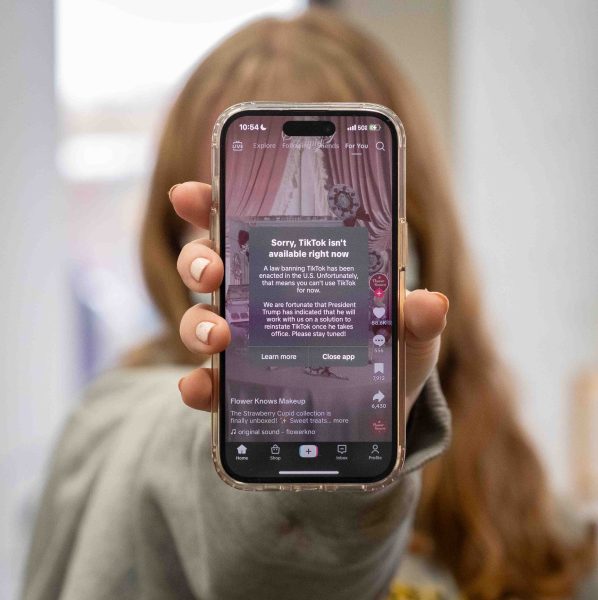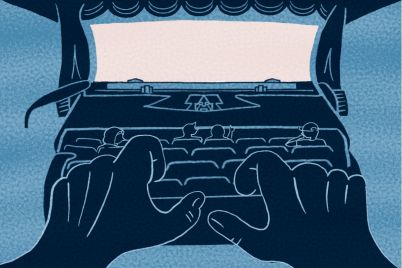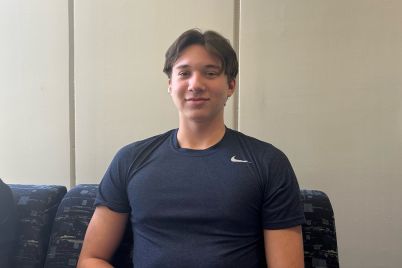
TikTok was temporarily banned over concerns about its links to the Chinese government. Not even 24 hours later, the app was brought back.
Courtney Prielipp | The Washtenaw Voice
Alice McGuire
Deputy Editor
On January 19th, the social media platform TikTok went dark, in accordance with the Supreme Court’s decision that the app should be banned if it is not sold to a U.S. buyer. That same day, the app was brought back online following President Trump’s promise to issue an executive order to delay the ban once in office.
Rayan Salam, a media professional and teacher at WCC as well as an avid TikTok user, said, “Sometimes we forget that free speech ends when we collide with other people’s rights or national security. Or things that can be threatening to our country, or invasion of privacy, or libel, or slander, or enticement against the government. So not everything that you see online is covered by free speech.”
What makes TikTok different from other social media, according to Salam, is that it is “not that social,” though it still “creates a sense of community.” Additionally, Salam pointed out that many people rely on TikTok for their livelihood as the app provides more ways in which content creators can earn income than many other social media platforms, such as through the TikTok shop.
Salam went on to say that she finds fears about TikTok’s impact on humans to be no different from the sort of fears which always arise in the advent of new forms of media. In particular, she finds the act of scrolling through TikTok similar to flipping through cable television in the late 1900s–an activity that was once feared to create “couch potatoes.”
Nova Barksdale, 15, an undecided student, said that while she did not use TikTok much herself, she fears the ban will set a precedent for restricting access to content which is not owned and operated by a U.S. company, “Regardless of if I use TikTok or not, it will probably eventually come to affect me.”
Deborah Hares, 34, a student in the arts management program, enjoys watching TikTok videos on platforms other than TikTok, saying that she finds the app “too addicting” and that it is difficult to filter out misinformation.
Hares had mixed feelings about the ban, saying that she could understand concerns over “privacy,” but that she appreciates a number of the ways in which TikTok has impacted culture, such as helping small businesses and elevating the voices of neurodivergent individuals.
Jomanah Alghazali, 15, a general math and science major, said that she thinks a ban would overall be for the best as the content on TikTok largely consists of “quick dopamine.” Alghazali expressed concern over the app impacting her attention span and sleep schedules, as well as those of her friends and teenagers in general.
Dena Blair, who serves as department chair of communication media and theatre arts as well as lead faculty for the broadcast media arts program, has never been on TikTok. While Blair is “not sure of what TikTok is exactly,” she sees the app as fitting within a larger history of how social media usage follows trends, with apps coming and going.
“Everyone was friends with Tom on Myspace,” said Blair. “Tom” Anderson was the co-founder of Myspace, though he is perhaps better known for being the automatic first friend of users who registered for the platform. Blair went on to say she has noticed that, as time goes on, the content on social media platforms appears to be getting “smaller” and “more centralized” so that “the content goes through us quicker.”


